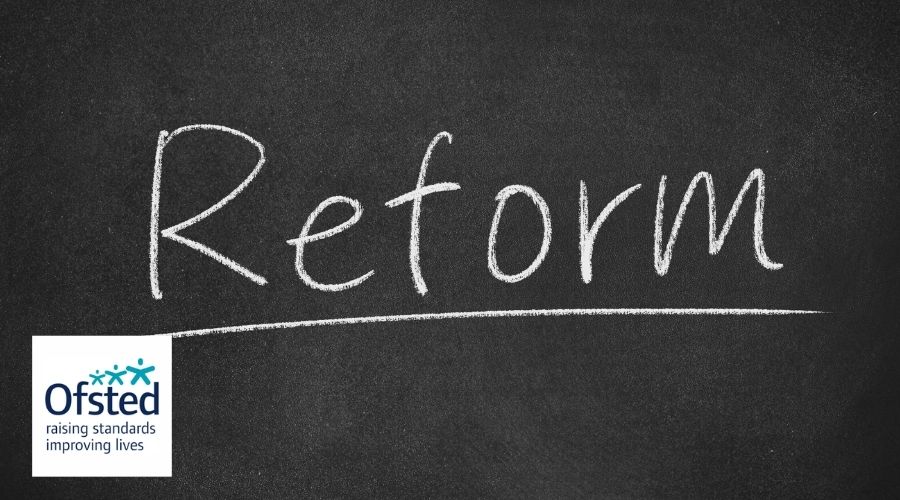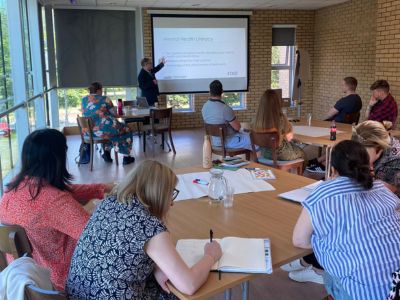
From November, parents will be given more detail about their children’s education with the introduction of new-look report cards, Ofsted has confirmed today.
The consultation
Following last year’s Big Listen, Ofsted set out an ambition to reset relationships with the professionals it inspects and regulates, while retaining the confidence of the children, parents and carers it works for. This included a commitment to revise the education inspection framework and introduce new report cards.
In February 2025, a 12-week consultation set out a series of proposals for change, covering early years, state-funded schools, non-association independent schools, FE and skills, and ITE providers.
Ofsted received more than 6,500 responses to the online consultation from parents and education professionals. Feedback was also gathered through focus groups and roundtables; in-depth discussions with experts; test visits to volunteer settings, and independent qualitative and quantitative research.
The reforms
The reforms announced today are based on this rich and varied evidence. Alongside the consultation response, Ofsted has published the final versions of the education inspection toolkits and new operational guides which describe how the revised methodology will change the look and feel of inspection.
The reforms will come into effect in November 2025. Key changes include:
- A new inspection report card to highlight excellence and identify areas for improvement – driving high and rising standards. The report card will provide more nuance for parents and providers, combining at-a-glance grades with narrative summaries of strengths and areas for improvement. Following extensive feedback and user testing of February’s proposed version, the report card has been redesigned to make it more accessible, particularly on mobile devices.
- A new 5-point grading scale to set high expectations, while encouraging improvement where it is needed. In response to feedback from professionals and parents about the proposed terminology, the final set of grades has changed to:
- Urgent improvement
- Needs attention
- Expected standard
- Strong standard
- Exceptional
- A wider range of evaluation areas than in current reports. But following feedback, the number of core evaluation areas has been streamlined.
- A new ‘exceptional’ grade to identify the very best provision in the country. In a change from the initial proposals, providers will not be asked to submit case studies for approval. Instead, inspectors will evaluate ‘exceptional’ practice by applying the toolkit, subject to the usual quality assurance and consistency checking.
- A new ‘inclusion’ evaluation area to help break down barriers to learning and well-being. Inspectors will evaluate whether education providers are providing high-quality support for all children and learners, especially those from disadvantaged backgrounds, those who have SEND, and those who are known to children’s social care.
- New inspection toolkits for grading providers. In response to feedback, the definitions of grades have been tightened to more clearly differentiate between them. The standards covered in the toolkits have also been slimmed down to provide greater clarity on the evidence inspectors will assess.
- A new inspection methodology to reduce workload for the education workforce. The toolkits are designed to assess the professional standards, statutory and non-statutory requirements already placed on schools, early years and FE and skills providers. New operating guides set out the times at which inspectors can arrive on site and the suggested latest times they should be departing, to cap the length of inspection days.
- Evaluation of providers’ work to support and promote leader and staff well-being. This will be considered as part of the leadership and governance evaluation area.
- Inspection findings to be grounded in a clear understanding of each provider’s unique circumstances. The new operating guides set out how leaders and inspectors will reflect on a provider’s context and priorities.
- A new online insights platform – ‘Ofsted – Explore an Area’, giving parents key information about the education and care services in their local area.
- A new system for monitoring schools where improvement is needed, to offer reassurance to parents and carers. These inspections will allow providers to improve ‘needs attention’ grades and have improvements recognised more quickly.
- To drive consistent and fair inspections, school, independent school, and FE and skills inspections will be led by full-time His Majesty’s Inspectors. These experienced inspectors will oversee the inspection, building a professional relationship with the leaders (including any nominee) to deliver a more collaborative experience. In addition, Ofsted will introduce a programme of work to assess consistency in school inspections, including having a senior inspector shadow a sample of live inspections to guide and advise the inspection team. Post inspection, any initial differences between the senior inspector and the team will be analysed.
- Increased resource and training for inspection teams will drive quality and consistency: an additional school inspector will add capacity to the team, allowing the lead inspector to spend more time with leaders (including any nominee), as well as overseeing and quality assuring the inspection.
As part of the revised approach, inspectors will put more emphasis on parental engagement – particularly in schools.
Read the full press release: https://www.gov.uk/government/news/ofsted-confirms-changes-to-education-inspection-and-unveils-new-look-report-cards
Lily Blakeledge
9/9/2025
Navigating Ofsted and Mental Health

Achieve mental health excellence and secure outstanding inspection outcomes with AMHIE’s DfE-aligned training. We equip your whole-school team, from leaders to support staff, with certified competence and a robust mental health strategy.
Your ROI is clear: You move beyond reactive support, gain the tools to effectively document and evidence provision for Ofsted, and build a unified, confident team. Join over 1,500 trained Mental Health Leads who rate our expert-led courses 9/10 on average.
Ready to confidently meet DfE and Ofsted expectations? Explore the full AMHIE training offer and secure your team’s place today: Visit the AMHIE Training Page
